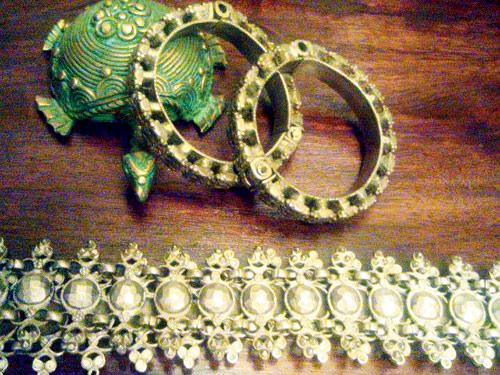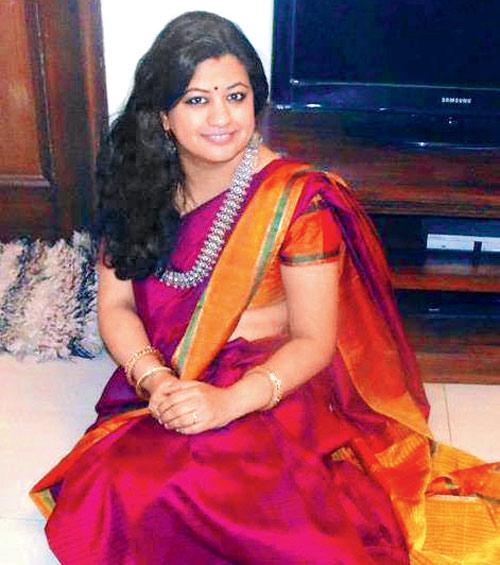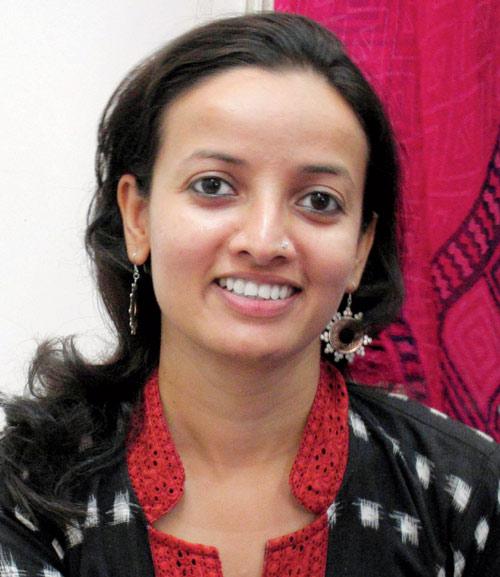Taking cue from the Indian Memory Project, Puja Bhargava Kamath's Indian Jewellery Project aims to put together a visual history of Indian jewellery by crowd-sourcing images from the personal archives of families

Her vermillion-coloured sari matches the tikka on her forehead, even as the ruby and diamond ear studs in her ears twinkle ever so lightly. But it is the ‘Avalakki sara’ around Lakshmi Krishnappa’s neck that is the star here, she insists. “Avalakkai translates to poha or flattened rice. Any kind of chain is referred to as sara in Kannada. This jewellery piece gets its name from the rice bead shape,” explains the Bangalore-based Krishnappa.
ADVERTISEMENT

Pooja Mishra (below) says she owns some beautiful heirloom jewellery — including a silver cummerbund which she now wears as a necklace (in pic) and a pair of kadas (bangles) that her nani (maternal grandmother) handed over to her mother and her mother to Mishra.
The 84-year-old finds a place of pride — however unlikely it may seem — in a photo album on the official Facebook page of jewellery designer Puja Bhargava Kamath. Her avalakki sara is not the latter’s creation though. Commissioned out to a jeweller in Thymagondlu (rural Karnataka) back in 1960, this gold chain is among the first few entries to be featured in Kamath’s ambitious Indian Jewellery Project (IJP).

Having launched the IJP earlier this month, founder Kamath admits that it draws inspiration from the Indian Memory Project (IMP). “I first came across the IMP in October last year and fell in love with the concept. I then realised that it would be wonderful if an open archive like that existed for Indian jewellery too especially since it (Indian jewellery) is my current area of work and focus,”

Puja Bhargava Kamath
she recollects. The 30-something jewellery designer also feels that typically, Indians have tons of material in their old family photographs or heirloom pieces. “One could contribute pictures — those with emphasis on jewellery — from family albums to compile what we hope, with time, can become a large source of reference. It will tell us about the kind of jewellery worn in India in days gone by,” says Kamath, adding that IJP is also open to recent photos of family heirlooms. “Of course, it needs to be carried along with the corresponding story i.e. significance of the jewellery item, current status of that piece whether it is has been handed down/ melted/sold. We will include anything — gold, silver and brass accessories — that helps document our jewellery from the pre-1980s period,” she points out.
Pooja Mishra is one of the early IJP contributors. “I own some beautiful heirloom jewellery — including silver cummerbund and pair of kadas (bangles) that my maternal grandmother handed over to my mother, who gave it to me,” she says.
Kamath explains that IJP could keep the owners’ names under wraps, if they so wish. “I’m just trying to leverage the community of jewellery lovers that we have cultivated on my label Lai’s Facebook page. Out of the 10 submissions we received, six have made the cut,” reveals Kamath.
To be featured on the website, email puja.bhargava@gmail.com
 Subscribe today by clicking the link and stay updated with the latest news!" Click here!
Subscribe today by clicking the link and stay updated with the latest news!" Click here!






